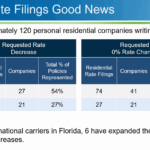The Group of 20 major economies struggled on Friday to find common ground on currencies and borrowing, exposing rifts between advocates of a dash for growth and supporters of more austerity to revive the world economy.
A meeting in Moscow of finance officials from the G20 nations, which account for 90 percent of the world’s gross domestic product and two-thirds of its population, looked likely to be dominated by sparring over Japan’s expansive policies that have driven down the value of the yen.
A row was also brewing between Europe and the United States over extending a promise to reduce budget deficits beyond 2016. A pact struck in Toronto in 2010 will expire this year if leaders fail to agree at a G20 summit in St Petersburg in September.
The G20 forum, which put together a huge financial backstop to halt a market meltdown in 2009, is back in the spotlight after a week in which the Group of Seven rich nations tried, and spectacularly failed, to speak with one voice on currencies.
The G7 has long been the powerhouse of financial diplomacy. But tension between Washington and Tokyo has risen over new Prime Minister Shinzo Abe’s drive to end two decades of deflation.
The G7 issued a joint statement on Tuesday reaffirming “our longstanding commitment to market determined exchange rates”. Yet the show of unity was quickly undermined by off-the-record briefings critical of Japan.
An apparently frustrated European Central Bank President Mario Draghi said in Moscow that loose talk on currencies was “inappropriate, fruitless and self-defeating”.
Policies of central banks in most of the leading developed economies to pump money into their banking systems have raised the prospect of “competitive devaluations” as each country tries to boost its exports by engineering a weaker currency.
Draghi declined – in line with policy – to say whether the euro’s exchange rate was appropriate but noted it was in line with long-term averages in nominal and real terms.
He was joined by two German ECB policymakers in pushing back against political pressure to target the euro’s exchange rate.
French President Francois Hollande last week raised the possibility of political interference in exchange rate policy when he called for a medium-term target for the euro’s value, a move to counter its recent appreciation.
“I fear a politicization of the exchange rate,” ECB policymaker Jens Weidmann, who also heads the German central bank, told Bloomberg in an interview.
German Finance Minister Wolfgang Schaeuble, in a radio interview before flying to Moscow, said he expected the G20 to back the G7’s position on currencies.
Host Russia’s finance “sherpa”, Deputy Finance Minister Sergei Storchak, said the drafting discussion was proving difficult, but the final text would not single out Japan for criticism.
“There is no competitive devaluation, there are no currency wars,” Storchak told reporters. “What’s happening is market reaction to exclusively internal decision making.”
When the G20 last met in November, its statement contained a call to “refrain from competitive devaluation of currencies” that was omitted by the G7 this week in what Tokyo took to mean its policies had won a free pass.
Indonesia, one of the rising Asia-Pacific economies, said it was less concerned about the exchange rate of the yen than about Japanese growth. “If the Japanese increase their domestic demand it will help Indonesia, especially from the export side,” said Hartadi Sarwono, deputy central bank governor.
U.S. VS EUROPE
The United States, G20 delegation sources said, was blocking attempts to agree on a fresh commitment to cut borrowing, a position that reflects Washington’s focus on running expansive policies until unemployment comes down.
The euro zone’s largest economy, Germany, and the European Central Bank, want a new borrowing pledge – in line with their own tough medicine for the currency bloc’s ailing periphery.
A European Union position paper set out the dispute in stark terms. It said the United States “was not ready to commit to a … numerical target”.
“The EU considers it essential to agree credible and ambitious targets,” said the document, obtained by Reuters.
The maneuvering on currencies is reminiscent of the 1980s, when the Plaza and Louvre accords sought to manage first the excessive strengthening, and then weakening, of the U.S. dollar.
But, with the collapse of communism in Eastern Europe and China’s adoption of its own brand of capitalism, the world has changed. Emerging markets, as exporters and reserve holders, now demand a greater say in global financial management.
One senior G20 source said late on Thursday that there would be no separate statement on currencies. A passage would be inserted into the main communique, but it would not repeat the G7 line that “we will not target exchange rates”.
This, the source said, would not be acceptable to China – which is now the world’s second-largest economy and holds much of its $3.3 trillion [€2.472 trillion] in foreign reserves in U.S. Treasury bonds.
DEFLATION, REFLATION
Japan’s embrace of ‘Abenomics’ entails a huge round of fiscal and monetary expansion aimed at raising the inflation rate to 2 percent.
The yen has fallen by around 20 percent since November, triggering a rally in Japanese stocks that, the government hopes, will kick-start growth by encouraging savers to spend and companies to invest.
With the United States, Britain and euro zone all running ultra-loose monetary policies, some emerging market exporters have sounded the alarm over ‘currency wars’ that they say will devalue their foreign reserves and hit their competitiveness.
Russian officials note that Japan has not intervened on currency markets to weaken the yen, suggesting that Tokyo would not be singled out as a miscreant.
Before flying to Moscow, Bank of Japan Governor Masaaki Shirakawa defended the monetary expansion, saying it was aimed at reviving the economy – which shrank in the fourth quarter – and not at weakening the yen.
“The BOJ is conducting monetary policy to achieve stability in Japan’s economy. It will continue to do so,” he said.
By Jan Strupczewski and Lesley Wroughton MOSCOW, Feb 15 (Reuters) –
Was this article valuable?
Here are more articles you may enjoy.


 Erie Insurance Restores Online Access for Customers; Still Working on Other Systems
Erie Insurance Restores Online Access for Customers; Still Working on Other Systems  Erie Insurance Facing 2 Class Actions Claiming Data Breach
Erie Insurance Facing 2 Class Actions Claiming Data Breach  Slide’s Exec Pay Leads to Questions About Florida Citizens’ Rate Model
Slide’s Exec Pay Leads to Questions About Florida Citizens’ Rate Model  College Team Physicians Wary of Greater Liability Risk With Athletes Making Money
College Team Physicians Wary of Greater Liability Risk With Athletes Making Money 

